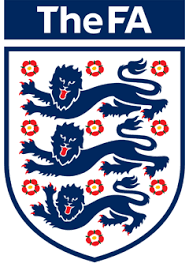 To define the requirements of SoccerNet, the Agile Project Management methodology will be used. Agile (as its commonly referred to) is a methodology recognised by the Association of Project Managers (APM) for software development. The methodology was created by a group of professional project managers who desired a new way of managing projects and set out their idea in the Agile Manifesto. According to the APM wesbite, these ‘organisational anarchists’, created a vision whereby, ‘instead of immediately detailing all of the requirements and basing both the plan and the contract on a series of assumptions that would turn out to be inadequate at best, delivery teams were invited to embrace an iterative, fast-paced and much more flexible approach‘. Put simply, while detailed requirements and assumptions are useful for static projects, such as construction, Agile is ideal for dynamic projects, such as software development.
To define the requirements of SoccerNet, the Agile Project Management methodology will be used. Agile (as its commonly referred to) is a methodology recognised by the Association of Project Managers (APM) for software development. The methodology was created by a group of professional project managers who desired a new way of managing projects and set out their idea in the Agile Manifesto. According to the APM wesbite, these ‘organisational anarchists’, created a vision whereby, ‘instead of immediately detailing all of the requirements and basing both the plan and the contract on a series of assumptions that would turn out to be inadequate at best, delivery teams were invited to embrace an iterative, fast-paced and much more flexible approach‘. Put simply, while detailed requirements and assumptions are useful for static projects, such as construction, Agile is ideal for dynamic projects, such as software development.
Agile is also useful for SoccerNet to enable ‘collaborative innovation’ in developing the social network. Collaborative innovation as defined by Rogers’ Diffusion of Innovation theory seeks to promote adoption through joint development between the user community and entrepreneur. Collaborative innovation in SoccerNet will manifest as an innovation team working members of the footballing community to create new innovations within the social network. As new innovations are realised, an updated version of the application will be deployed. Having static user requirements and assumptions would restrict collaborative innovation, moreover, new innovation often arises from challenging requirements and assumptions. The Agile way, therefore, is to define requirements with sufficient detail to understand what should be created, but not in a way to constrain creativity.
According to APM, ‘the ‘agile way’ is to gather the key stakeholders for a series of brainstorming sessions…multiple exercises, and a level of gamification, usually help identify the user’s persona and needs‘. The user needs are codified in user stories which define the who, what and why for each user represented with a persona. The basic structure of a user story is as follows:
As a < type of user >, I want < some goal > so that < some reason >.

A persona relevant to SoccerNet is the FA Chairman, and relating this persona to the user story structure might give the following:
FA Chairman. As the FA Chairman, I want to engage with the grassroots footballing community to increase participation in grassroots football.
Of interest, this user story does not specify the use of a social network, it is sufficiently broad to allow for a number of different tools. To have included reference to a social network user story in the user story is often referred to as ‘solutioneering’, an idea that could be summarised by the notion of ‘here is our product, what’s the problem’. As opposed to defining the solution, user stories define an objective or vision that could be satisfied with a range of solutions.
The following personas and user stories have been written using interviews with parents players and coaches, the remainder are written using personal judgement. Each of these would be refined as the design and development of SoccerNet progresses with greater access to the relevant people. Where relevant, quotes from each interviewee have been included to validate the story. Each of these personas and user stories has been used to animate the Unified Modelling Language (UML) diagrams for developing SoccerNet’s software architecture. Accompanying each user story is some commentary on how each is currently satisfied and what positive difference SoccerNet will make following adoption.
FA Chairman
As the FA Chairman, I want to engage with the grassroots footballing community to increase participation in grassroots football.
Participation is currently promoted using media campaigns and community events.
SoccerNet seeks to provide:
- A new media channel to improve communications between the FA and grassroots football.
- A more efficient means to organise community events.
- Promote adoption of the FAs Community Charter standard.
- A new way to for talent identification of young players using data gathered from games.
- A new way to demonstrate the FAs positive engagement with grassroots football for social good.
- A new way for football professionals to communicate with grassroots football.
- As a new social good, a new way to promote the FA’s brand.
A Person with a Disability
As a person with a disability, I want the ability to use SoccetNet so I can enjoy playing football.
SoccerNet will be designed in accordance with W3Cs Web Accessibility standards as a minimum, as well as others where necessary.
A Person with low Digital Literacy
As a person with low Digital Literacy, I want to be able to join the online community to continue being part of what I enjoy.
Through its professional coaching courses, the FA will offer digital literacy training and will seek out community driven initiatives to overcome this barrier.
FA Ethics Committee
As the FA Ethics Committee, I want to engage with the grassroots football community to enforce the rules and regulations of football.
The rule and regulations of football at grassroots level are currently enforced through the referee. There are additionally various media campaigns to promote values such as inclusivity and safeguarding as referenced on the FA website.
SoccerNet seeks to provide
- A new media channel for more targetted media campaigns to support referees.
- A means for referees to communicate and share ideas using, for example, forums and wikis.
- A means for the FA’s ethics committee to communicate with their referees.
- Through gamification, small games with the app could be developed to promote football’s regulations and ethics.
- Through moderation, should people post content in contravention of the FA’s rules and regulations (eg. racist commentary), they can visually be reprimanded through the award of a red or yellow card on their profile.
FA Community Development Team
As the FA Community Development Team, I want to engage with the grassroots football community to promote community development.
The Community partnership between The FA and McDonald’s focuses on supporting accredited grassroots clubs and their volunteers. There are two schemes within this partnership:
- FA Charter Standard accreditation is awarded to clubs and leagues rigorously adjudged to be well-run and sustainable – and which prioritise child protection, quality coaching and implementation of the Respect programme.
- Community Football Days provide participation opportunities for those families and young players new to the game and for those who already play, regardless of their ability or experience, as well as being used as a recruitment vehicle to help continue to grow the game.
SoccerNet seeks to provide:
- A more efficient means for clubs to attain FA Charter Standard Accreditation. Achieving this accreditation has a bureaucratic burden to record certifications and complete checks. A series of online tools will be developed to reduce this bureaucratic burden thereby promoting adoption of the scheme and higher standard in grassroots football.
- A more efficient means to organise community events. Within the application, the FA will become more able to organise football community away days.
- Democratised organisation of community events. Rather than the FA’s community development team having to organise away days, other organisations, such as local councils and clubs can organise accredited events.
- A new media channel for the FA’s community development programme to communicate with grassroots football.
Local Council
As a local council, I want to engage with grassroots football to find ways to fund community initiatives.
Local Football Community Organisations
As a local football community organisation, I want to find funding opportunities for my team.
Presently, funding opportunities are advertised, primarily using websites such as GreaterSport. As has been revealed by our research, grassroots football clubs and local sports organisations miss funding opportunities on an enormous scale.
SoccerNet seeks to provide:
- A new communications channel to connect grassroots football clubs and local sports organisations with funding opportunities. This can be achieved by targetted campaigns when new funding opportunities are released and by providing a more efficient means to apply for those funds.
Grounds Keeper
As a grounds keeper, I want to know when games are being played so that I can ensure the pitches are in good condition.
Presently, grounds keepers communicate with league organisers using a mixture of means such as text messages, phone calls and emails.
SoccerNet seeks to provide:
- A more efficient means for grounds keepers to know when games are to be played to ensure pitches are in good condition for each game.
- A new means for grounds keepers to communiate with each other.
- A new means for the FA to communicate with grounds keepers to share ideas on how to best maintain football pitches.
- A new means for grounds keepers to communicate with members of the grassroots footballing community.
League Organiser
As a league organiser, I want a set of tools to organise my league in ways that reduce the administrative burden and promoting participation with the league.
FA accredited leagues are presently organised using the online service ‘FULL-TIME’. This is an online website service, more about which can be found in our review of existing technologies.
In addition to the functionality provided by FULL-TIME, SoccerNet seeks to:
- Using interactive tools, such as a social media news feed, provide a new communications channel for league organisers to communicate with teams, player and parents associated with each league.
- Provide a means for the FA to communicate with league organisers, for example webinars.
- Provide a means for league organisers to collaborate and share ideas using, for example blogs and wikis.
- To create a safe environment and promote rules and regulations, content created in the new communications channel will be monitored by the FA.
- A new means for professional clubs to communicate with the leagues and teams in their area, from a football parent, ‘I like the ideas of professionals getting involved. Ipswich town and assume a lot of other prof clubs do quite a lot of stuff to motivate local kids’.
Referee
As a referee, I want a set of tools to organise my refereeing activities over a season that reduce the administrative burden.
Referees currently participate with a league using FULL-TIME
In addition to the functionality provided by FULL-TIME, SoccerNet seek to:
- Provide a means for referees to communicate with league organisers and team managers.
- Provide a means for referees to collaborate and share ideas through using, for example, blogs and wikis.
- Provide a means for the FA’s ethics committee to communicate with referees.
- Provide a new means for professional referees to communicate with grass roots referees.
Team Manager
As a team manager, I want a set of tools to organise my team in ways that reduce the administrative burden.
Team managers currently organise participation within a league using FULL-TIME, and manage their teams using a mixture of emails, Facebook groups, WhatsApp and subscription based social networks. From football parents:
- ‘We just use WhatsApp and take guidance from the guy in charge on the regulations’.
- ‘H (her child) has football training on Fridays and games on Saturdays. It’s all organised by emails from the organiser. I know this is about football, but rugby is all organised by Spond which is much more useful than emails. You can see fixtures, events, locations, player availability and get last minute updates of cancellations etc’.
- ‘Hockey and rugby here are organised using Pitchero which sounds like Spond’.
A willingness – or not – to use social networks, such as Facebook, is a risk to how Grassroots football is organised. There is an implicit assumption in the existing model that people are willing to use these networks. In light of recent scandals related to social networks, such as Facebook, an increased unwillingness to use its features presents a risk for people’s participation in grassroots football. SoccerNet, therefore, seek to manage this risk by replicating the features used in these social networks to ensure fair participation in each league.
In addition to and augmenting the features of FULL-TIME, SoccerNet will:
- Provide features akin to social network groups for managing teams.
- Provide a means for managers to communicate with players.
- Provide a means for managers to communicate with parents of players.
- Provide a means to see results of games and position in the league.
- Provide a means to share content about games, within the regulations of data sharing regulations and SoccerNet’s community standards.
- Provide data to record player performance over a season.
- A new way to promote their team.
Player
As a player I want a set of tools to organise my participation with the team over a season in a way that reduces the administrative burden and increases the enjoyment of being part of a team.
Presently players communicate with their team members and managers using a variety of tools such as social networks, emails and phone calls.
SoccerNet seeks to provide:
- A new means for players to organise participation with their teams over a season.
- A new means for players to communicate with other members of the team and club.
- A new means to promote their team.
- In accordance with the FA’s community rules, new ways to communicate with other teams of the same league.
- A new way to connect with professional players.
A non-Football supporter or player
As a non-Football supporter or player I do not want to participate in the grassroots community as a do not like what football represents.
This negative-type of user story has been included as they are the type of person the FA seeks to appeal to: to promote participation in the grassroots community, he must appeal to people beyond the existing community. In our research, we found people who do not like football as they do not believe football represents its community standards. There are perceptions of disrespect towards referees and violence on the pitch. To appeal to this community, therefore, would be a success factor of SoccerNet. In this process SoccerNet would be a communications channel which evidences the FAs commitment to its community standards, thereby providing assistance rather than a solution.
SoccerNet seeks to assist with:
- Promoting football by demonstrating its social value
- Changing perceptions of football by promoting respect within the community
- Promoting football by publically challenging violence on the pitch
Parent
As a parent I want a set of tools to organise my child’s participation with their team as part of a safe and secure community.
Parents presently organise their child’s participation using a mixture of social networks, emails and phone calls. From two football parents:
- ‘You’ll find it’s (generally) the mums who organise everything of who needs to be where and when”
- ‘Most of our sports are free and we just pay for registration / insurance etc…. scheduling is done on a closed facebook page’.
SoccerNet seeks to provide:
- A new way for parents to organise their child’s participation with a team over a season.
- Because of the SoccerNet’s Community Standards, knowledge that their child is participating in a sport actively promoting positive social values.
- Through content monitoring, knowledge their child is less likely to see offensive content than other networks.
Team Sponsor
As a team sponsor, I would like a channel to advertise my sponsorship of a team with greater visibility.
Presently team sponsorship is advertised on team strips and websites.
SoccerNet seeks to provide:
- A new communications channel to advertise their organisation.
Journalist
As a journalist, I would like to know about games and activities in the grassroots footballing community to report on them for my news outlet.
Presently local journalists gather content by attending games and interviewing league participants.
SoccerNet seeks to provide:
- An open platform for journalists to track the progress of teams over a season.
